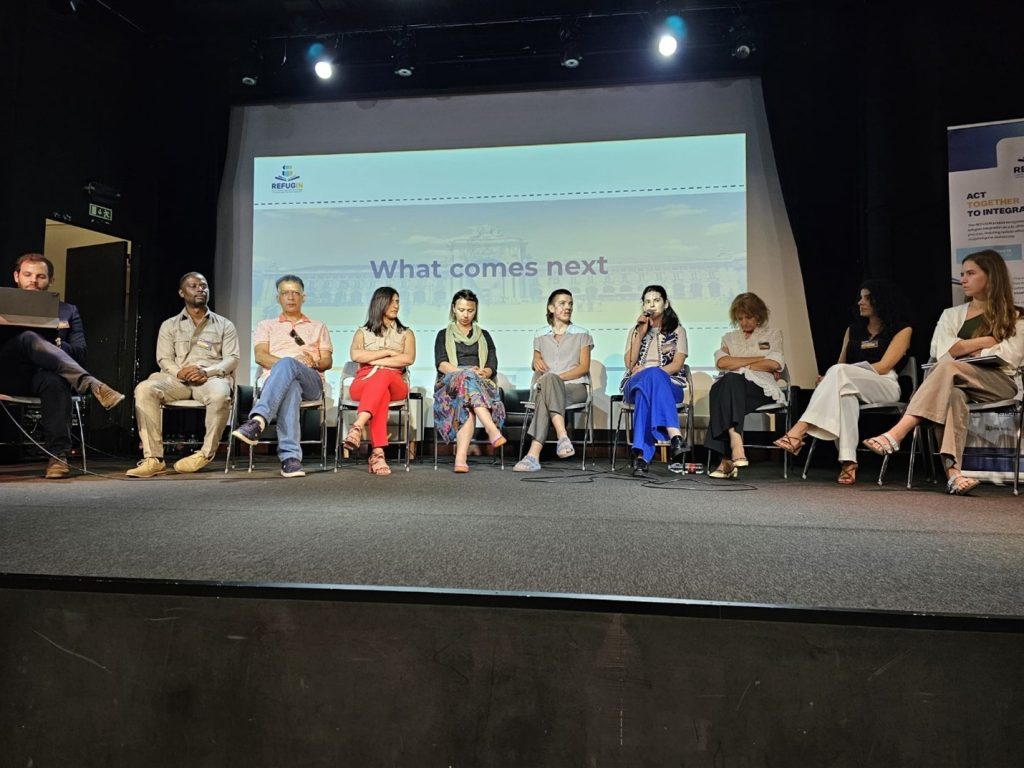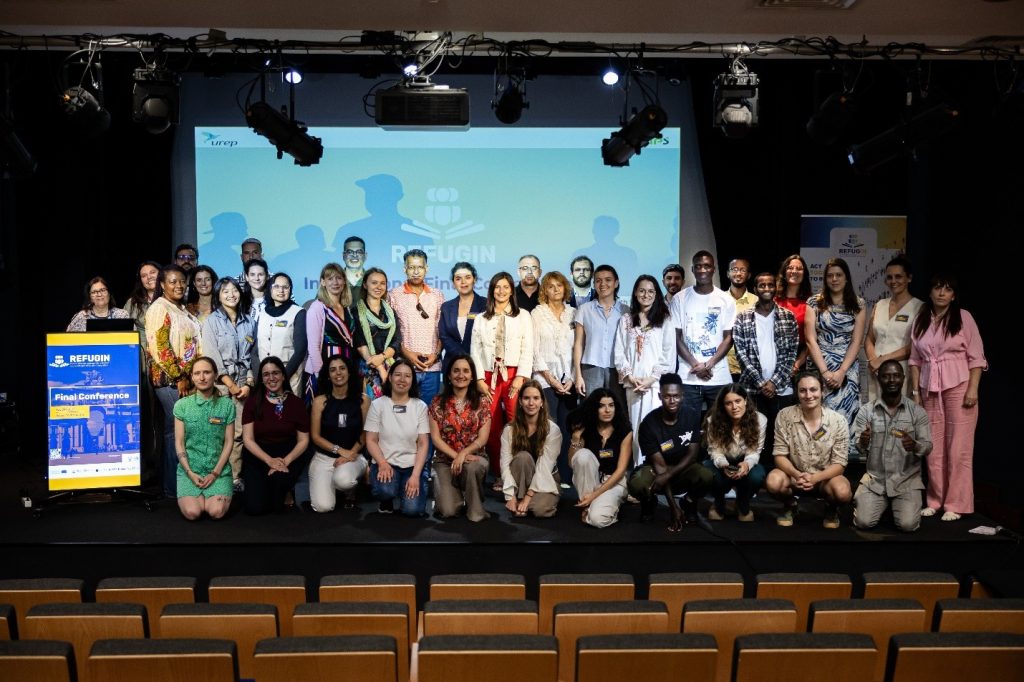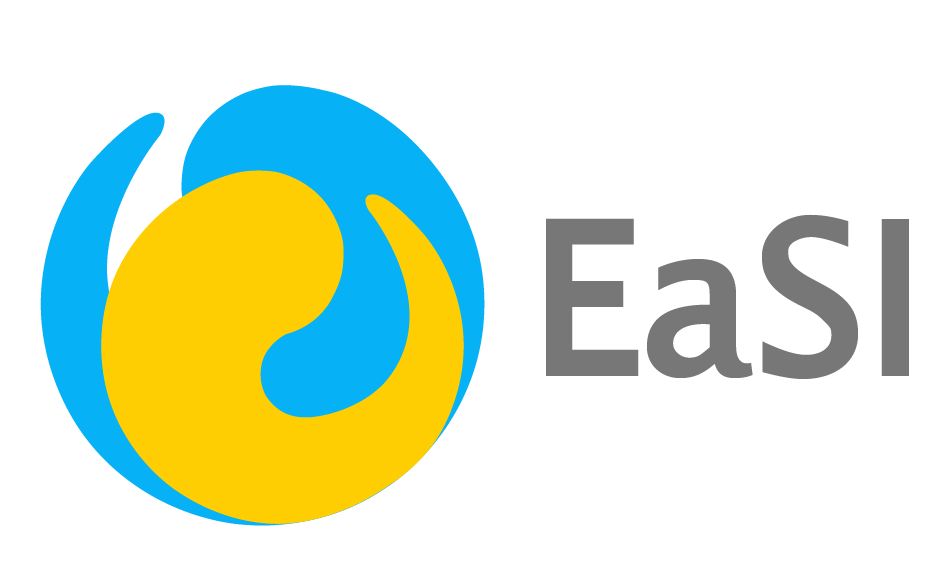Social innovation in action: REFUGIN’s community‑driven path to young refugees’ wellbeing

Have you ever wondered how social innovation can reshape the way we welcome and support young refugees? In a time when refugee integration sits high on Europe’s policy agenda (Eurostat, n.d.), the REFUGIN initiative offers a fresh, communitarian approach to tackling persistent barriers, be they resource gaps, discriminatory attitudes, or fragmented support systems.
Why REFUGIN?
The development of the REFUGIN project has been motivated by the need to address one of the most pressing social issues Europe is currently facing, the refugee crisis. Since 2015, we have seen a large increase of displacement around the world (UNHCR, 2016). War and political turmoil have forced thousands to leave their homes behind and seek refuge across Europe. Starting with 2021, the situation has worsened, following the invasion of Ukraine and the return of the Taliban, millions were driven to seek safety for themselves and their families (UNHCR, 2022). Once in their new homes, their transition is not without difficulty, especially for young refugees, who have to experience key developmental stages of a person’s life while dealing with the challenges of displacement. Even though many organizations offer immediate help, there is still a lack of programs that focus on refugees’ long-term needs and help them build meaningful, positive futures. As far-right, nationalist politics and anti-immigration discourses begin to surge across Europe (European Parliamentary Research Service, 2023), we identified the urgency of providing young refugees and the professionals working with them, the appropriate tools and networks to ease their social and civic integration and invite communities at large to actively participate in this process.
Kickstarting the REFUGIN project
A consortium of 8 associations focused on social innovation and integration across Europe (Romania, Republic of Moldova, Hungary, Serbia, to Poland, Greece, Portugal and France) have joined forces to develop a holistic approach for the empowerment of young refugees and of the educators and NGO professionals working with them.
Based on the partners’ experience and current studies on migration, we quickly learned about the importance of a supportive civil society in the process of integration. Because of this, the REFUGIN project was designed with the aim of strengthening the role of civil society in integrating young refugees.
Our first step was gaining a deep understanding of the needs of educators, NGO professionals, and the young refugees themselves, through surveys, interviews and focus group-type discussions. Based on these insights, we set out to develop training courses to better equip professionals to support and guide young refugees as they settle in their new communities.
On the other hand, REFUGIN also designed a blended learning (e-learning) training course specifically for young refugees (14 – 25 years old), to focus on both direct and indirect empowerment. The course’s objective was to help improve literacy, develop soft skills, foster resilience, and encourage positive social and civic participation. Given this, both learning paths were designed to support the medium- and long-term integration of young refugees into their host societies.
The REFUGIN’s dynamic resource suite for empowering refugee youth
Based on the initial research, the REFUGIN project partners crafted creative solutions to effectively foster intercultural understanding, tolerance, and empathy toward young refugees, and to address the lack of opportunities available for their meaningful integration into the host country and community.
The REFUGIN developed resources include:
- A European network of civil society professionals.
- An International Civic Form Practical Manual of effective integration practices for NGOs and educators.
- A comprehensive needs and skills assessment report.
- Innovative training programs for both civil society professionals and young refugees.
- A mentoring model for young refugees.
- A framework for building inclusive societies, and standardized guidelines to help schools become more intercultural and welcoming.
REFUGIN concludes – insights and impact from our final conference

Our final conference, held on the 29th of May, in Lisbon, Portugal, gathered over 50 professionals for a moment of sharing and reflecting on the challenges of migration for young people across Europe and how to influence long-term, positive integration.
Practitioners shared insights regarding the challenges faced by young refugees—such as education, housing, and mental health—and called for solutions that are both participatory and thoroughly evaluated.
Our capacity-building training programs were shown to make a real difference for both practitioners and youth, underscoring the importance of ongoing learning to create agents of change.
The conference also showcased our mentorship program, with testimonies from both mentors and mentees revealing the powerful, shared human experience of integration. We introduced new frameworks for schools and NGOs to foster intercultural understanding and inclusive communication, helping host communities and refugees connect and collaborate.

We are deeply grateful to everyone who participated, supported, and contributed to the REFUGIN project. Although the project is coming to an end, the relationships and ideas it sparked will continue to grow and make a difference.
Learn more about the REFUGIN project at: Refugin Project
Like what we do? Stay connected and support our mission by following us on Facebook, LinkedIn.
References
Eurostat. (n.d.). Migrant integration. European Commission. Retrieved July 25, 2025, from https://ec.europa.eu/eurostat/web/migration-asylum/migrant-integration
European Parliamentary Research Service. (2023). The rise of the far right in Europe: Implications for the future. Retrieved from https://www.europarl.europa.eu/thinktank/en/document/EPRS_BRI(2023)739357
United Nations High Commissioner for Refugees. (2016). Global trends: Forced displacement in 2015. UNHCR. Retrieved from https://www.unhcr.org/576408cd7.pdf
United Nations High Commissioner for Refugees. (2022). Global trends: Forced displacement in 2021. UNHCR. Retrieved from https://www.unhcr.org/publications/global-trends-2021


Comments are closed